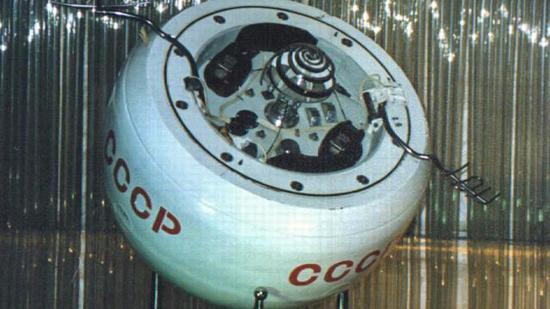
Spacecraft Meant to Land on Venus Crashes into Indian Ocean After 53 Years
In a stunning turn of events, a Soviet-era spacecraft meant to land on Venus has finally come to an end, crashing into the Indian Ocean over the weekend. The Kosmos-482 spacecraft, launched in 1972, had been orbiting Earth for an astonishing 53 years, its intended mission to land on the scorching hot planet of Venus foiled by a rocket malfunction.
The spacecraft, weighing 500 kilograms, was part of a series of Soviet-era Venus probes designed to study the planet’s surface and atmosphere. However, shortly after its launch, the spacecraft suffered a malfunction that prevented it from entering Venus’ orbit. Instead, it remained stuck in Earth’s orbit, drifting aimlessly for over five decades.
Despite its prolonged stay in space, Kosmos-482 remained operational, continuing to transmit data back to Earth until its communication equipment failed in the 1980s. Since then, the spacecraft has been in silence, its fate unknown.
But on Saturday, the spacecraft’s journey finally came to an end. According to reports, Kosmos-482 re-entered Earth’s atmosphere, disintegrating and breaking apart as it hurtled towards the Indian Ocean. The spacecraft’s remains are believed to have splashed down in the ocean, marking the end of its long and storied journey.
The unexpected crash has sparked a mix of emotions among space enthusiasts and historians, who have been fascinated by the spacecraft’s unusual history. “It’s a remarkable story,” said Dr. Maria Zuber, a planetary scientist at the Massachusetts Institute of Technology. “Kosmos-482 has been in space for longer than many people have been alive. Its legacy will live on as a symbol of the Soviet Union’s pioneering efforts in space exploration.”
The crash of Kosmos-482 serves as a reminder of the risks and challenges associated with space travel. Despite advances in technology and engineering, space missions are rarely without risks, and even the most well-planned and well-executed missions can go awry.
The spacecraft’s malfunction was a result of a combination of factors, including rocket misfires and navigation errors. Despite efforts to correct the issue, the spacecraft remained stuck in orbit, its intended mission to explore Venus abandoned.
In the decades since its launch, Kosmos-482 has been the subject of much speculation and curiosity. Space enthusiasts have speculated about the spacecraft’s fate, wondering whether it would remain in orbit forever or eventually fall back to Earth.
The crash of Kosmos-482 has also raised questions about the long-term viability of space exploration. As technology continues to advance, the possibility of spacecraft remaining in orbit for extended periods of time becomes increasingly likely. The crash serves as a reminder of the importance of mission planning and contingency protocols, ensuring that even the most unexpected events can be mitigated.
As the world says goodbye to Kosmos-482, its legacy will live on as a testament to the pioneering spirit of space exploration. The spacecraft’s remarkable journey, from its launch in 1972 to its eventual crash into the Indian Ocean, serves as a reminder of the incredible feats that can be achieved when humanity pushes the boundaries of what is possible.
Source: https://amp.dw.com/en/soviet-era-venus-probe-plunges-back-to-earth-after-53-years/a-72502555






